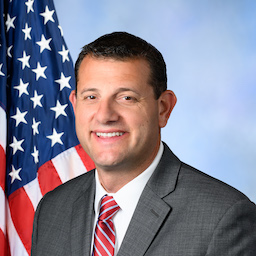- Home
- About
-
Services
- Art Competition
- Community Project Funding Map
- Congressional App Contest
- Congressional Certificate
- Event Request
- Flag Request
- Grants
- Grant Letters of Support
- Help with a Federal Agency
- Inauguration
- Internships
- Kids Page
- Meeting Request
- Service Academy Nominations
- Tour Requests
- Vietnam Veteran Commemoration
- Government Shutdown FAQ
- Issues
- Media
- Contact

Menu
Press Releases
Congressman Valadao's Legislation to Combat Romance Scams Passes Out of House Committee on Energy and Commerce
Washington,
April 8, 2025
|
Paige Ash
Today, the House Committee on Energy and Commerce advanced H.R. 2481, the Romance Scam Prevention Act, out of a full committee markup.
WASHINGTON – Today, the House Committee on Energy and Commerce advanced H.R. 2481, the Romance Scam Prevention Act, out of a full committee markup. The Romance Scam Prevention Act is a bipartisan bill introduced by Congressman David Valadao (CA-22) and Reps. Brittany Petterson (CO-07), Tom Suozzi (NY-03), and Craig Goldman (TX-12). This legislation would require dating apps and services to issue fraud ban notifications to users who have interacted with a person removed from the app for fraudulent activity.
Senators Marsha Blackburn (R-TN) and John Hickenlooper (D-CO) introduced the companion bill in the Senate, which passed out of the Senate Committee on Commerce, Science, and Transportation on March 12, 2025. “Millions of Americans use online dating services to make connections, making them the perfect platform for romance scammers to target their victims,” said Congressman Valadao. “Alerting users that they have been in contact with someone who has been banned for fraud is a basic security feature that will save Americans billions, and I’m proud to lead this effort alongside my Congressional colleagues. I want to thank Chairman Brett Guthrie and the House Committee on Energy and Commerce for their attention to this critical issue.” Background: Over 60 million Americans used an online dating service in 2023, and the Federal Trade Commission (FTC) reported that romance scams resulted in victims losing over $1.1 billion. Criminals use false names and stories to lure individuals into conversation before manipulating them to give up sensitive information. When an online dating service provider becomes aware of a user committing fraudulent activity, like illegally obtaining money, the online dating service provider immediately deactivates the fraudulent user’s account. However, individuals who meet online often take their conversations to other communication platforms, so even when a fraudulent account is removed, an individual might not know they are still communicating with someone who was banned from the platform. Read a one-pager on the bill here. Read the full bill here. ### |

